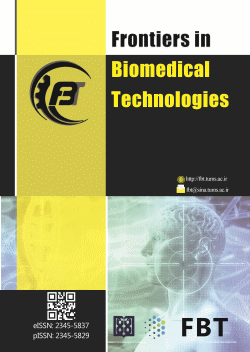An Adaptive Filtering Approach Using Supervised SSA for Identification of Sleep Stages From EEG
Abstract
Purpose: Sleep is a complex physiological state and an indicator of the changes in the brain function similar to those occurring in many psychiatric and neurological conditions. Since visual sleep scoring consuming process, automatic sleep staging methods, also called scoring, hold promise in diagnosing alterations in the sleep process and the sleep EEG more effectively.
Method: In this paper, a supervised approach for sleep scoring from single channel EEG signals is proposed. First, a supervised singular spectrum analysis (SSA) which is a subspace based method is used to extract the desired signal for each stage of sleep. Then, two recursive least squares (RLS) adaptive filters are trained and used to identify first and deep sleep stages.
Result: The proposed system which can be considered as a filter bank for separating multiple signal subbands is tested using real EEG where the results verify the accuracy of the proposed method.
Conclusion: The overall result show the effectiveness of algorithm for detection of sleep stages from EEG signals often characterised by a sharp increase in delta and a rapid decrease in alpha as sleep deepens.
| Files | ||
| Issue | Vol 1 No 4 (2014) | |
| Section | Original Article(s) | |
| Keywords | ||
| Adaptive Filters Empirical Mode Decomposition Recursive Least Squares Singular Spectrum Analysis Sleep EEG. | ||
| Rights and permissions | |

|
This work is licensed under a Creative Commons Attribution-NonCommercial 4.0 International License. |




